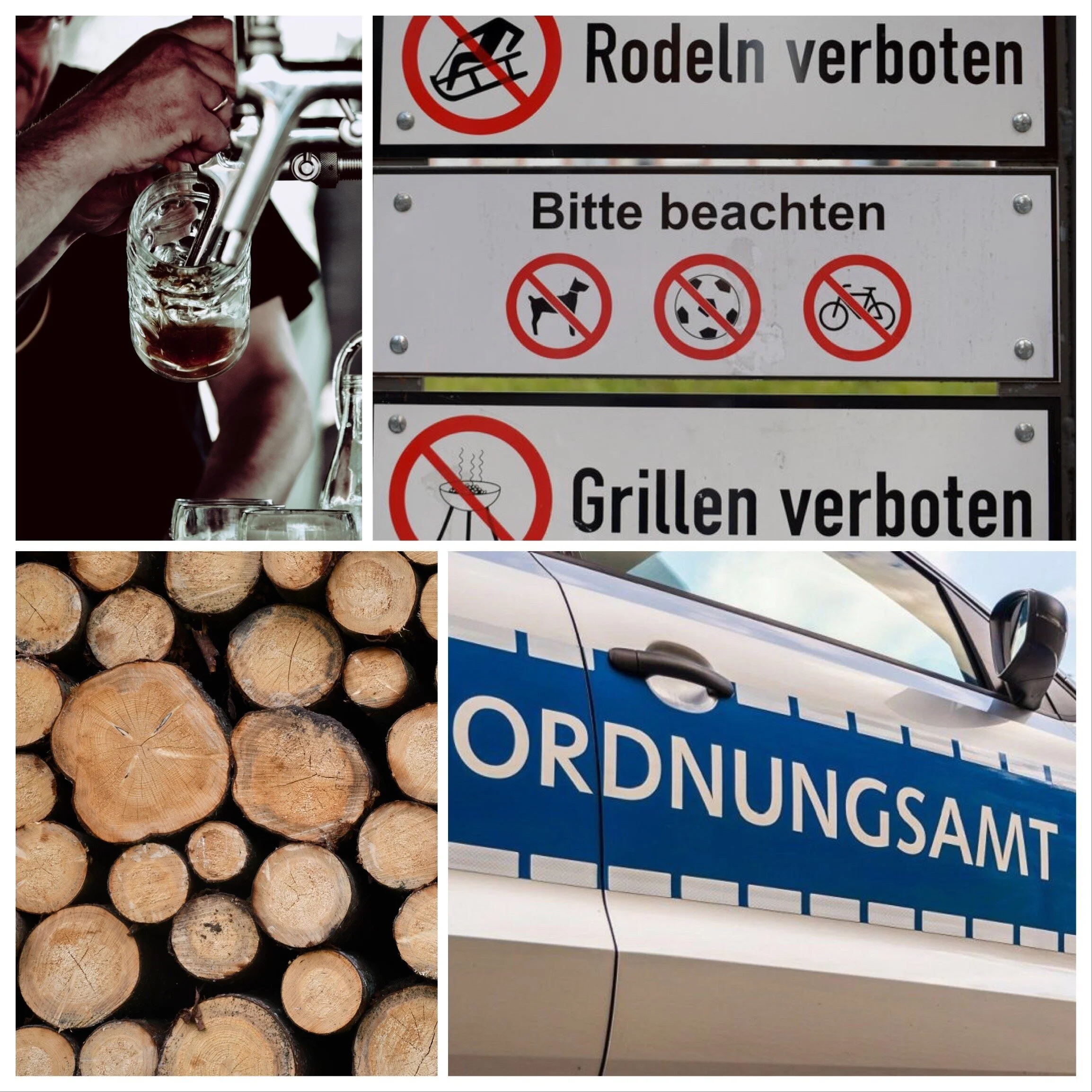Don't Call Me Papa
My name has always been a problem for people, specifically my last name. You may have assumed that sorry is the hardest word, it’s not, 38 years of experience tells me it’s ‘Houghton’. At this point I’ve heard every possible iteration, from Hawton, Huffton to Hogton. I gave up correcting people around secondary school, it just seemed like a wasted effort. Now, I’ve accepted that through no fault of my own, I go by many names, none of which happen to be correct. When I left the UK, I hoped I’d get a fresh start, sadly I was mistaken. In fairness to Germany, they do considerably better with my name than my British compatriots or at least the Germans I meet make the error with unbridled confidence, which I guess is some small consolation. The British approach to pronouncing difficult names is typical of a culture that made awkward interactions an art form. Given the opportunity, British people will use my first name. When confronted with a situation where they must use my last name, the British will say it quickly into their chests, a muffled collection of noises that they hope vaguely sounds like my name. Since I’m also cursed with similar levels of social awkwardness, I just go with it.
My wife is still not used to my last name, even after seven years of marriage, everyday of which she’s regretted taking it. I would be lying if I said I didn’t gain some measure of solace when I hear her pause momentarily on a call to some official office, exhale wearily, and then begin spelling ‘H.O.U.G.H.T.O.N’. I understand her pain obviously, but as I always tell her, the first decade or so is usually the hardest, then you get used to it. We’re lucky really, my Indian and Chinese colleagues often introduce themselves by a European moniker they’ve chosen or some abridged version of their actual name.
At this point in my life I’m due a rebrand and as it happens my wife and I decided to go for the most extreme rebranding exercise couples can go through, we had a child. I was rather looking forward to becoming ‘Dad’. Maybe I could get a shed, have a mid-life crisis and learn not to hate cricket. Of course, I’d totally forgotten that I don’t live in an English-speaking country. From the moment we announced that my wife was pregnant, I was forcibly relaunched into the world as ‘Papa’. No more ‘Nic’ for me, now I was fielding questions like ‘How does Papa feel about the new baby?’ or ‘Is papa hoping for a boy or a girl?’. Obviously, I didn’t respond to these questions, I was looking around for whoever the hell this ‘Papa’ was everyone kept addressing.
Photo by Tim Mossholder on Unsplash
Once I realised the problem, it was too late. Well, that’s not strictly accurate. The moment I got off a plane at Munich airport in 2011 it was too late. I might have been taught that ‘Vater’ is the German for father, but no one is using that, except perhaps for some inbred former princeling living in a mountain top castle. ‘Papa’ is the norm here and I’m having to adapt to it rather faster than I ever did to the multiple mispronunciations of my last name.
The first issue I have with ‘Papa’ is the problem all second language learners have with new words; I have zero emotional connection. They might as well call me ‘Schinkenboch’ or ‘Popokussel’ for all it means to me. If anything, the name ‘Papa’ conjures in my mind a kindly grey-haired gentleman who spends his days making puppets that magically come to life thanks to the auspices of some fairy godmother and a talking cricket. I knew that I would be taking on new responsibilities when we had a child, but I wasn’t really prepared for a role that would require me to save my child from a gingerbread house inhabited by a witch. Yet here I am, waiting for an anthropomorphic wolf to try and blow my house down.
Photo by Johannes Plenio on Unsplash
Fairy Tales aside, the second problem I have is that now people I don’t even know will just randomly call me ‘Papa’. Parents at the play park, people in the street or checkout assistants all seem fine with calling me by my new name. It’s just weird, especially in a country that has gone to great linguistic lengths to ensure polite distance is built into the language. No more siezen honorifics for me I guess, now I’m just ‘Papa’ the friendly wood cutter. I’m not used to it at all, despite it happening for over a year. Whenever someone calls me by my new title, I tend to take a moment to realise. It must be weird for everyone else too as I look at them blankly, before acknowledging the ‘Papa’ in question is me.
For a few months, I did attempt to fight my involuntary name change, but I realised that I was going nowhere fast. Over the course of two months, I asked family and friends to stop using ‘Papa’ and instead say ‘Dad’, disguising my annoyance as a desire to teach my daughter English. It failed for exactly the reasons that people who give themselves a cool nickname fail. For Germans it’s immeasurably weird and unnatural to call someone ‘Dad’, I might as well have asked them all to start calling me ‘Razor’ or ‘Jawbone’.
I may like to imagine I’m quite important, but in reality there is little chance of me ever changing the whole German language. I suppose I could take out a full page advert in Süddeutsche Zeitung or pay for a billboard to advertise my desire not to be called ‘Papa’ but despite the competitive pricing (I did check) I doubt it would be money well spent. I would always be fighting the most uphill of battles. Instead I’m falling back on the indifference I developed as a small child whenever a teacher would call me ‘Nick Hugton’. All I would ask is, should you ever meet me in the street or bump into me at the supermarket, please, for my sake, don’t call me papa.
Image Credit:
Photo by Tim Mossholder on Unsplash
Photo by Johannes Plenio on Unsplash
Photo by Anna Shvets from Pexels
Photo by Ekaterina Bolovtsova from Pexels
Photo by Cederic Vandenberghe on Unsplash









